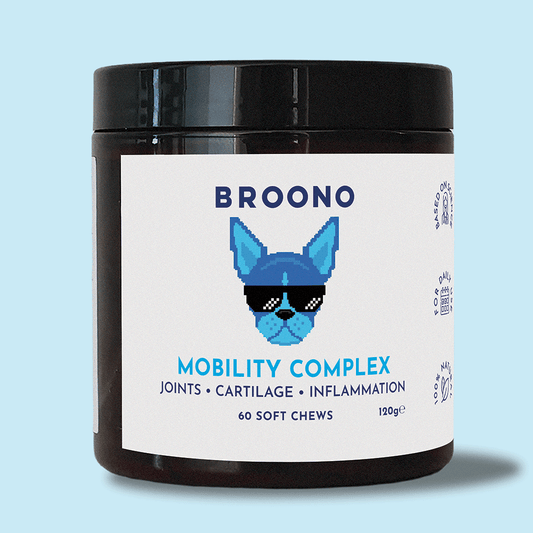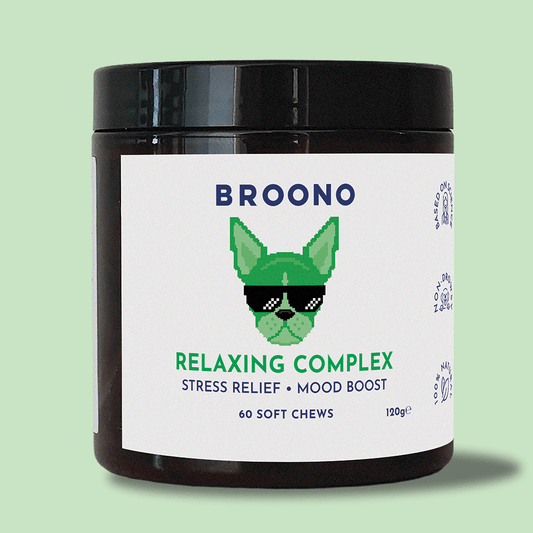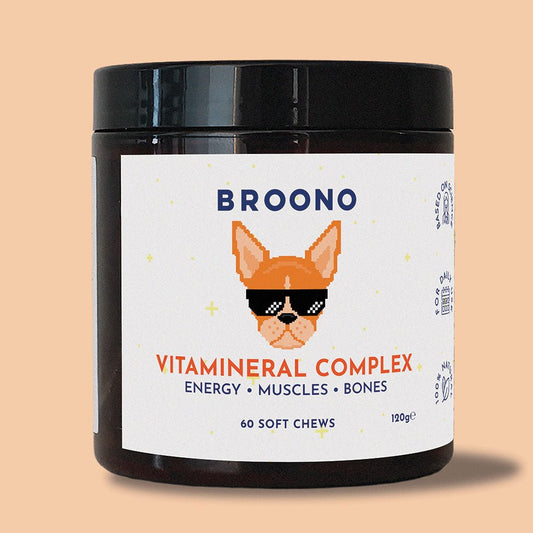How to Approach the Cold Season
Winter brings a unique set of challenges for our furry friends. With colder temperatures, decreased outdoor activity, and changes in routine, your dog’s immune system might need a little extra support to stay strong and resilient. In this guide, we’ll explore the impact of the cold season on your dog’s health and the proactive steps you can take to help them thrive throughout the winter.
Cold Weather’s Hidden Impact on Dog Health
Winter weather can strain your dog’s immune defences. Cold air can dry out mucous membranes, which are vital for protecting against bacteria and viruses, while wet and chilly conditions can further weaken their resistance to illnesses. Indoors, heating systems may warm up the room but also dry out the air, which can lead to dehydration and respiratory irritation. With less time spent outdoors and decreased exercise, their immune function can weaken, highlighting the importance of taking extra care in the colder months.
Powering Immunity with Essential Nutrients
Providing the right nutrients can make all the difference in helping your dog’s immune system stand strong in winter. Focus on these key vitamins and minerals:
- Vitamin C: Known for its antioxidant power, Vitamin C helps combat oxidative stress and supports the production of infection-fighting white blood cells.
- Vitamin E: Also a strong antioxidant, Vitamin E protects cells from damage, which is crucial for maintaining the health of your dog’s skin and tissues.
- Zinc: Essential for immune cell function, zinc improves your dog’s ability to recognise and fight infections.
- Omega-3 Fatty Acids: Known for their anti-inflammatory benefits, omega-3s help maintain skin health and reduce inflammation, especially helpful during dry winter months.
Including these nutrients in your dog’s diet can give them a boost in fighting off winter-related illnesses.
The Role of Exercise in Winter Immunity
Maintaining physical activity is just as vital in winter as it is in warmer months. Regular exercise helps transport immune cells effectively throughout your dog’s body, reducing stress levels and promoting circulation to keep their immune system in peak form.
To keep your dog active in winter:
- Take them on short, frequent walks if the weather is too cold for extended outings.
- Engage them with indoor games like fetch or hide-and-seek.
- Let them safely play in the snow if they enjoy it, while closely monitoring for signs of discomfort.
Staying active during the colder months can make a big difference in their overall immune health.
Seasonal Dietary Adjustments for a Stronger Dog
Winter places extra demands on your dog’s body, so adjusting their diet to provide more energy and immunity support is crucial. Here are some tips:
- Increase Protein: Protein supports muscle maintenance and immune cell production, providing the energy needed for health and vitality.
- Healthy Fats for Energy: Omega-3 and omega-6 fatty acids boost immune response and maintain skin and coat health. Consider adding fish oil or other healthy fats to meet wintertime needs.
- Supplements for Immunity: Supplementing with Vitamin C, zinc, and omega-3s can provide added defence against winter illnesses.
A few dietary adjustments can go a long way in helping your dog stay resilient.
Managing Stress for a Happier, Healthier Dog
Dogs can experience heightened stress in winter due to changes in routine and more time spent indoors. Stress can weaken the immune system, so managing it is essential:
- Create a Comfortable Environment: Give your dog a warm, safe indoor space where they can feel at ease.
- Provide Mental Stimulation: Keep their minds active with puzzle toys, interactive games, or training sessions to alleviate boredom.
- Consider Calming Supplements: Natural options like L-theanine or chamomile can help manage stress without causing sedation.
Reducing stress is key to keeping your dog’s immune system robust throughout winter.
Why Hydration Matters More Than You Think
Dehydration is still a risk in winter due to dry indoor air. Staying hydrated helps maintain immune function and overall health. Ensure your dog has fresh water available at all times and consider adding water to their kibble or offering moisture-rich foods to keep them hydrated.
Supporting Joint Health During the Cold Months
Cold weather can intensify joint stiffness, especially in older dogs or those with arthritis. Joint discomfort can impact activity levels, which in turn affects immune health.
To support joint health:
- Joint Supplements: Glucosamine, chondroitin, MSM, and omega-3s help reduce joint inflammation and support flexibility.
- Keep Them Warm: Provide a coat or jacket for cold walks and ensure they have a cosy resting spot indoors.
By supporting joint health, you help maintain their activity levels, promoting better overall health.
Get Ahead of Winter Challenges Today
Winter poses unique challenges, but with the right care, your dog can enjoy a season of wellness and resilience. Start implementing these strategies now—from optimised nutrition and consistent exercise to stress reduction and hydration—to give your dog the support they need to thrive all winter long.





